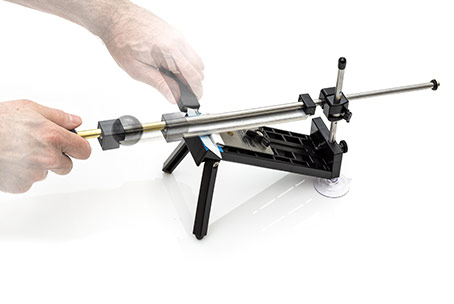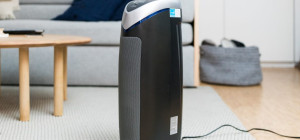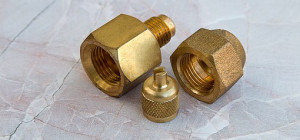 Choosing a good knife sharpener is not something you can do if you are not aware of the factors to consider when selecting the best. Most people think that only professionals need to have their knives sharp to ensure effectiveness in their kitchens. However, what you need to realize is that sharp knives have among many other benefits, preventing one from hurting themselves while using the knife. Imagine if we didn’t have knife sharpeners at this age of technological development. Could we still be using other sharpening alternatives such as stones like our predecessors did? I don’t think that life in the kitchen would be as effective as it is now, with the presence of knife sharpeners. These tools have brought in a lot of efficiencies when fixing dull or damaged knives that won’t cut as they did while they were new, thanks to invention and technology development. So, what are the main factors that one needs to consider when choosing the right knife sharpeners? Read on to discover some of these tips:
Choosing a good knife sharpener is not something you can do if you are not aware of the factors to consider when selecting the best. Most people think that only professionals need to have their knives sharp to ensure effectiveness in their kitchens. However, what you need to realize is that sharp knives have among many other benefits, preventing one from hurting themselves while using the knife. Imagine if we didn’t have knife sharpeners at this age of technological development. Could we still be using other sharpening alternatives such as stones like our predecessors did? I don’t think that life in the kitchen would be as effective as it is now, with the presence of knife sharpeners. These tools have brought in a lot of efficiencies when fixing dull or damaged knives that won’t cut as they did while they were new, thanks to invention and technology development. So, what are the main factors that one needs to consider when choosing the right knife sharpeners? Read on to discover some of these tips:
1. Sharpening mechanism
One thing you first need to know is that most of the times, you will have to choose between manual or electric knife sharpeners. The electric ones help to make the sharpening a bit automatic such that you won’t have to use a lot of energy while sharpening your knives. Other than that, there are two main key factors you need to consider, whether you prefer the electric or manual sharpeners.The first key factor is the kind of abrasive properties that the sharpener has. Carbides are not as effective as diamond since they most often result in rough cutting surfaces and may produce results that are not consistent. Sharpeners with diamond abrasive, on the other hand, result in a sharper, and stronger blade, which can be used longer without getting blunt easily. Other than that, sharpeners that have a diamond abrasive usually last long and are of a better quality.
2. Kinds of blades that it sharpens
Do you know that not all kinds of knives will be sharpened by any sharpener? At times it takes certain kinds of knife sharpeners to sharpen your knives efficiently. You need to know all types of knives you own so that you can choose a sharpener that will sharpen them all. Most of the times, almost all techniques can sharpen straight-edge blades, but angled knives or 15-degree blades might be a challenge for some of the sharpening techniques. In fact, ceramic knives or knives that have serrated edges might need special sharpeners for the best sharpening quality. Electric knife sharpeners are the best choice for serrated knives or knives that don’t have straight-edge blades.
3. Learning curve
When using a new tool or technique of doing something, there will be something referred to as a learning curve. This is the rate of your progress while gaining a new experience or skills. As such, whether it’s a tool you have not been using before, or it’s a particular sharpener model that you find more challenging than others you have used before, these are considerations you need to make when choosing the best knife sharpener.
4. Cleaning requirements
It’s obvious that you’ll have to keep your sharpener clean, to prevent its state from deteriorating over time. Therefore, you need to consider the cleaning process needed for the kind of sharpener you chose, since some will require a special cleaning that might be tedious and time-consuming than others.
5. Will it damage the blade
When buying a good knife sharpener, you might be concerned with whether it will damage the blade, since you don’t want a sharpener that might damage the blade and require you to keep on buying new knives now and then. As such, you need to go for a sharpener that won’t damage the blade on normal circumstances. Besides, a good knife sharpener should guide the sharpening, so that the user won’t cause damage to the knife inadvertently as they sharpen it. You might also need to ensure that the sharpener can handle the required angle for your knife’s blade to produce the perfect edge on knives that have different styles.
6. Sharpening standards
We all have varying perspectives as to how sharp your knife should be for better efficiency in the kitchen. Most individuals prefer the sharpest blades so they can determine when the knife has started being blunt. Other persons prefer knives that are not very sharp, as they fear to cut themselves in unlikely events. Whether you prefer very sharp blades or knives that are just perfectly sharp, you will need to make sure that the sharpener can meet your standards. For those who like very sharp knives, you might have to spend a little bit more to get the preferred results.
7. Space constraints
This is somehow straightforward since you might need more space for larger knife sharpeners. If you do not have enough room in your kitchen to store extra appliances, consider getting a small manual knife sharpener, as it will require a lesser space than electric sharpeners. If you have a lot of room to store appliances, then you have the advantage to own a professional electric sharpener since it takes up the largest space when compared to other types of sharpeners.
8. Noise produced
The amount of sound produced by a sharpener does not necessarily indicate the effectiveness in sharpening, and you will still find sharpeners that make a lot of noise when sharpening while others generate almost no noise. If you do not like appliances that produce much noise, then you will have to look for a sharpener that makes less noise, while still delivering perfect results, though you might have to pay more.
In conclusion, the above are the main factors to consider when looking for the best knife sharpener for quality results in your kitchen. Keep in mind that there are lots of benefits associated with sharp knives, which is why you always need to keep your blades sharp and functional, to avoid accidents.







